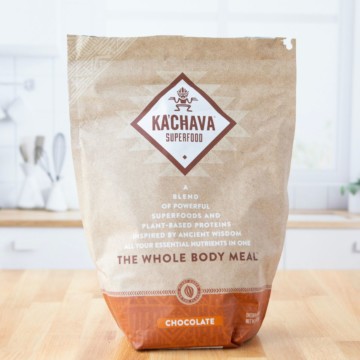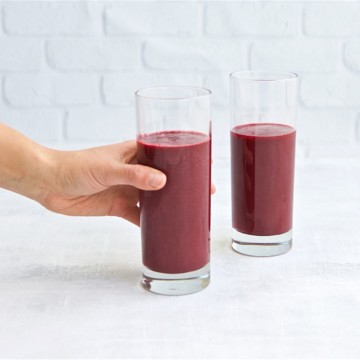
Prepare for the cold and flu season by learning which specific foods and supplements have been proven to help strengthen immune support. The next time you're sick, turn to these 8 foods to lend a helping hand in the fight against colds and help soothe your symptoms.

Zinc
When treating symptoms of infection, taking a zinc supplement has positive effects on the common cold in adults and children. Studies show that when adults and children take >75 mg/day of zinc, it can reduce the duration of the common cold. Zinc acetate may provide greater benefits than other zinc salts. It has been shown that zinc decreases risk of otitis media (middle ear infections), pneumonia, RTI, and diarrhea in children.
Other benefits of zinc include:
- Helps with integrity of the skin and mucous membranes
- Can enhance or maintain natural killer cytotoxic activity
- Plays a key role in cell differentiation and proliferation of immune cells that have quick turnover
- Improves phagocytic capacity of monocytes
- The mineral zinc plays a crucial role in the development, differentiation, and activation of T lymphocytes
- Plays an important role in antibody production of IgG, involved in antibody response, helps maintain immune tolerance
Vitamin C
This is perhaps the most common remedy we turn to when looking to reduce our number of sick days. Vitamin C can reduce the risk of and aid in healing of ongoing infections such as pneumonia in adults and children. It may also aid in the healing of the common cold in active individuals. Smokers are at increased risk of vitamin C deficiencies. High quality evidence suggests that vitamin C intake can help relieve symptoms of chest pain, fever, and chills in both children and adults. It may also help reduce the duration of those symptoms. The recommended therapeutic dose is 4-8 g/day or >0.2 g/day.
Research on Vitamin C
- The recommended daily allowance (RDA) ranges between 40-110 mg/day, but when infection is present, 100-200 mg/day may be more adequate
- High doses of vitamin C can help severely ill patients have a faster recovery time
- Supports integrity of epithelial barriers due to the promotion of collagen synthesis
- Supports protection of cell membranes from damage caused by free radicals
- Supports proliferation, function, and movement of neutrophils, monocytes, and phagocytes.
- Can enhance or maintain natural killer cytotoxic activity.
- Enhances phagocytosis and microbial killing, involved in apoptosis of spent neutrophils at site of macrophage infection
- High levels can increase antimicrobial influences
- Regulates cytokine production and decreased histamine levels
- Plays a crucial role in the development, differentiation, and proliferation of cytotoxic T cells
- Influences the proliferation of lymphocytes, which increases the development of antibodies
- In order to counteract oxidative stress, high levels of vitamin C in neutrophils are beneficial
- Common foods with Vitamin C are citrus fruits, strawberries, bell peppers, and broccoli
Honey
Raw honey has several health benefits. It contains antioxidants and has anti-inflammatory properties. It also has antibacterial, antidiabetic, respiratory, gastrointestinal, cardiovascular, and nervous system protective effects.
Research on honey tells us:
- The darker the honey is naturally, the more antioxidants it contains. Phenolic compounds are responsible for the antioxidant activity of honey
- The enzymatic glucose oxidation reaction is the main factor for the antimicrobial activity of honey
- Manuka honey has the ability to significantly decrease the growth of E. coli and staphylococcus aureus’
- Honey increases generation of T and B lymphocytes antibodies, eosinophils, neutrophils, monocytes, and natural killer cells. This occurs during primary and secondary immune responses
Bone Broth
Comforting foods like chicken soup and hot tea sound so good when we have a sore throat or stuffy nose. Bone broth may be a better choice. We make bone broth by boiling animal bones and connective tissue. There is currently no scientific evidence that indicates bone broth’s benefits to fight off the common cold. There is also no evidence that it has immune-boosting nutrients. However, bone broth contains collagen, which does have many proven health benefits. In one cup of bone broth, there could be between 5 to 17 grams of collagen. When suffering from cold or flu symptoms, it can be difficult to stay hydrated. Warm liquids like bone broth are a good way to help soothe symptoms, and also stay hydrated.
Echinacea
Echinacea has been shown to prevent the development of respiratory illness especially in passengers of long-haul flights. After flights, passengers experienced less respiratory symptoms when taking Echinacea versus a placebo. Echinacea may have some beneficial impacts to fight upper respiratory tract infection because it may reduce the risk of recurrence and development of complications. Extracts have been shown to support a strong immune system because of immunomodulatory effects via interaction with endocannabinoid receptors.
Garlic
Another food to fight colds is garlic. Several investigations show that garlic does have preventative and therapeutic roles when treating diseases such as flatulence, intestinal disorders, respiratory infections, skin diseases, wounds, and many other ailments. The impact of garlic has been attributed to reducing risk factors for cardiovascular diseases, reducing risks of cancer, antioxidant effects, antimicrobial effects, and enhancing detoxification of foreign compounds and hepato-protection.
More Benefits of Garlic
- Not only is garlic protective against both, gram-positive and gram-negative bacteria, but also has antiviral and antifungal properties. It inhibits the growth of bacterias such as Staphylococcus, Streptococcus, Micrococcus, Enterobacter, Escherichia, Klebsiella, Lactobacillus, Pseudomonas, Shigella, Salmonella, Proteus, and Helicobacter pylori.
- Garlic inhibits the growth of fungi such as Malassezia furfur, Candida albicans, Aspergillus, Cryptococcus and other Candida species. Garlic has been shown to be more effective than standard medical treatment of a fungus called Cryptococcus meningitis due to non toxic properties.
- Very little research has proved garlic's antiviral properties, but one study does show significant results on the occurrences of the common cold and the illness duration in participants who were taking garlic supplements versus a placebo group. The garlic group had 24 occurrences of the common cold and fewer days of illness whereas the placebo group had 65 occurrences of the common cold and longer illness periods.
- Garlic is known for its immune support against germs and antigens. Raw garlic contains alliin. When you crush or chew garlic, alliin turns into allicin, and since it is unstable, it is converted to sulfur containing compounds which is thought the be responsible for therapeutic effects. The sulfur containing amino acids and compounds plays a role in boosting immune support to protect against viruses that cause the common cold.
Ginger
Researchers believe fresh ginger has properties that can enhance immune function, respiratory ailments, and general health which helps responses to diseases and creates resistance to infections. Ginger has many essential vitamins, minerals, and antioxidants that benefit your overall health.
Benefits of Ginger
- So far we use ginger for interventions to help with inflammation, vomiting, swelling, pain, hypertension, cardiovascular diseases, oxidative damage, diabetes, nausea, colds, asthma, allergies, migraines, arthritis, hypertension, and some cancers.
- To experience the benefits of ginger, it is recommended that you should consume it in its natural, whole state rather than active ingredients. This is because other compounds may be needed for the synergy and influence of other components in the whole foods.
- We also use ginger in the medical field and the food industry. It is known to also help aid digestion. Studies show that ginger's impacts on immunity and health benefits include anti-inflammatory, antimicrobial, antibacterial, antioxidant, antitumor, antiplatelet formation, antiviral, and immunomodulatory.
Enjoy the benefits of ginger in my Cantaloupe Ginger Lime Smoothie and Orange Mango Ginger Smoothie recipes. Both are delicious, beautiful smoothies with great ingredients for your overall health.

Elderberry
The black elder plant aids in addressing cold and flu-like symptoms because of their antiviral properties against viruses. Elderberries have anthocyanins that boost immune health and antiviral effects. Black elderberries have protective agents against the common cold and flu. Elderberries contain Vitamin E, A, B1, B2, B6, B9, and C. They also contain trace elements such as Cu, Zn, Fe and minerals such as K, Ca and Mg to phytochemicals such as carotenoids, phytosterols and polyphenols.
Research on Elderberry
- In one study, participants with a cold taking elderberry experienced a shorter duration of cold-like symptoms by 2-days compared to participants who were taking the placebo. The elderberry group also experienced less severe cold-like symptoms than the placebo group.
- There are antiviral properties of elderberry extract against influenza virus type A and type B. The extract inhibits the replication of the influenza virus and hemagglutinin by binding to the virus and inhibits its attachment to glycol-conjugate receptors on the erythrocytes. Therefore, the extract enhances immune response.
This list of foods to fight colds is your new secret weapon for cold and flu season. Thankfully, most of these items should be stocked at your local grocery store. Here's to fewer sick days!




















